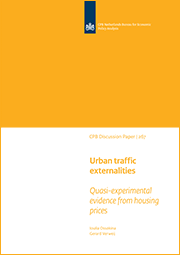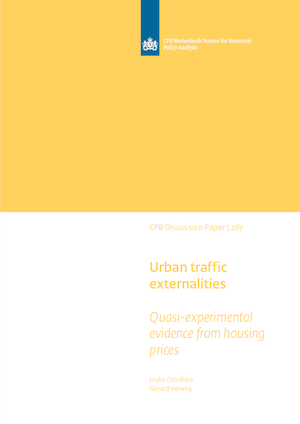February 19, 2014
Urban traffic externalities: quasi-experimental evidence from housing prices
This paper exploits a quasi-experiment to value the benefits of reducing urban traffic externalities. As a source of exogenous variation we use the opening of a new bypass in The Hague, the Netherlands, that reduced traffic on a number of local streets, leaving others unaffected.

We calculate the effect of the change in traffic nuisance on housing prices and find that a reduction of 50% in traffic density induces a 1% increase in housing prices on average. Reductions in traffic nuisance are valued much more positively when the traffic density is already high. We do not find evidence of anticipation effects up to 3 years before the change. Furthermore, our results indicate that traffic nuisance effects are likely to be biased in cross-sectional studies.
Downloads
Authors
Ioulia Ossokina
Gerard Verweij
